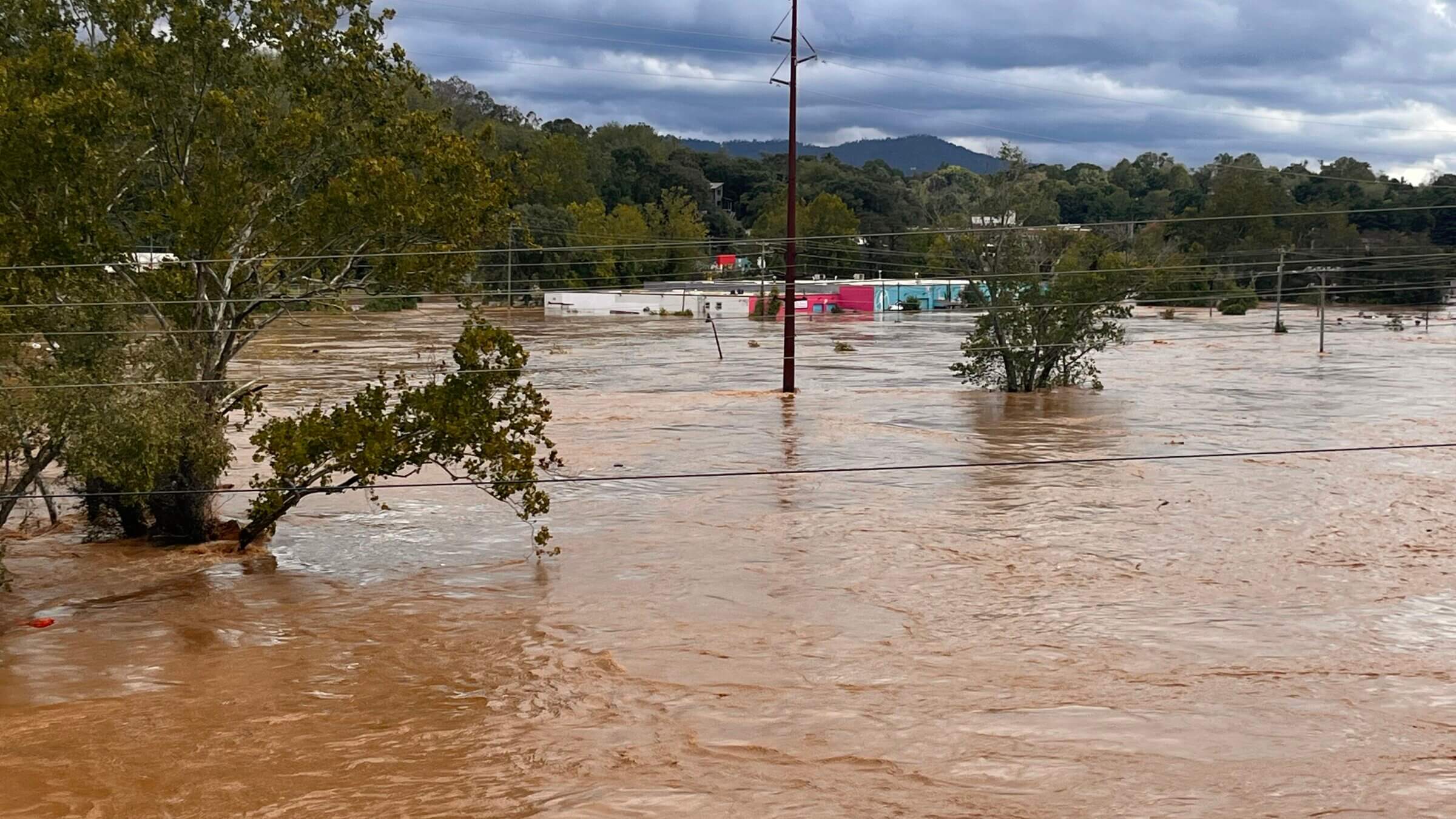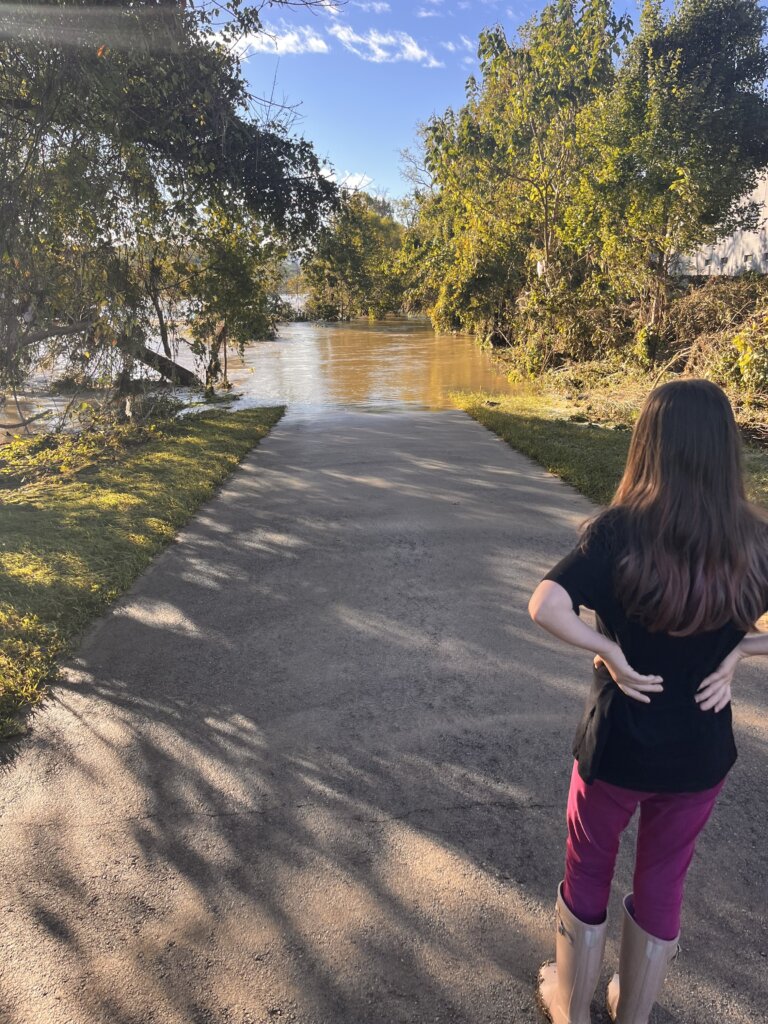‘A flood of biblical proportions’: A survivor’s Rosh Hashanah lessons from Hurricane Helene
‘We knew there were loved ones beneath the surface’

Floodwaters from Hurricane Helene inundate Asheville, N.C. Photo by Justin Goldstein
I live in Asheville, N.C., in the path of Hurricane Helene. The devastation and destruction are hard to fathom, and the emotional toll for those of us who call western North Carolina home is impossible to convey — the very waterways that sustain us took everything from us.
Standing on a bridge over the raging, swollen French Broad River, my 13-year-old daughter, Naviyah, and I witnessed a beloved part of Asheville nearly submerged in water, surrounded by friends and neighbors staring at the immense loss before our eyes. Beer kegs, wine barrels, modular homes, mobile homes, shipping containers, kayaks, and endless debris floated away beneath us. Beyond the objects, we knew there were loved ones taken by the floodwaters beneath the surface.
So much of the loss is unrecoverable. And while there is immense suffering and destruction, the people of the communities of western North Carolina, throughout Appalachia, and those further south are supporting one another and rebuilding their lives. Our resilience will allow us to persevere and recover what we have built.
In that moment on the bridge, trying to find even the slightest lightheartedness amid the devastation, my daughter and I got wrapped up in an intense debate about which objects a person might keep and which objects an owner might search for.
“Come and hear: if a river swept away one’s beans, wood, or stones, they belong to the finder,” the Talmud states, in a passage she and I happened to read together a few weeks earlier. We discussed the fine points of the text, before leaving the bridge for the short walk home. People filled the streets, embracing neighbors, sharing resources, supporting the most vulnerable, or just standing in silence and disbelief.

In the days following, I witnessed strangers sharing what they have with those who do not. I saw the life-giving work of first responders, aid organizations, and volunteers, and how their generosity inspired others to help. Many have been forced to flee; many are returning with essential supplies. In the last two days, the sounds of sirens and helicopters have not stopped. As I write this, tapping letters into my smartphone, on the sixth day without power or running water, it is hours from the last sunset of 5784, and I am thinking of the many New Years I have welcomed living in Asheville, and the many community members with whom I have celebrated the turn of the year.
And I don’t despair.
I’m confident that we can recover and build anew what we must. The people I have known and loved in this area give me this confidence. The MountainTrue River Keepers were in their canoes as soon as it was safe to do so, inspecting the damage up close. Rabbi Shaya Susskind of our local Chabad house, after days of traveling to bring resources and comfort to people detached from their usual communities and support, announced that Rosh Hashanah services would continue as planned.
Churches and community organizations opened their doors, their pockets and their hearts. Neighbors took our chainsaws to clear roads and driveways to release those trapped in their homes. Communities began sharing meals and laughter to ease one another’s hearts and minds. One of our local farmers markets went on as scheduled, but it came as no surprise that some of the farmers were simply asking for people to pay what they could.
I’m left with questions, much like the Talmud my daughter and I will resume learning when it is safe for her to return home. Why do disasters of biblical proportions bring a community together? What might our lives look like if this were our daily norm? Will we view the rivers and creeks with more awe and reverence, inspiring us to grapple with the tragic impacts of human-caused climate change? Will our temporary experience of homelessness compel us to confront the housing crisis in our community that leaves vulnerable people on the street nightly? When 5786 comes around, will we have grown and restored our commitment to building a better world?
My hope for 5785 is that we may take the memory of the last week and transform it into a stronger future, and that we remember it should not take a flood of biblical proportions to bring a community together. My daughter looked at the floodwaters beneath the bridge and said, “We won’t despair.” And that, for all of the enormity and gravity of the reality before us, will have to be enough for me to have a happy New Year.














